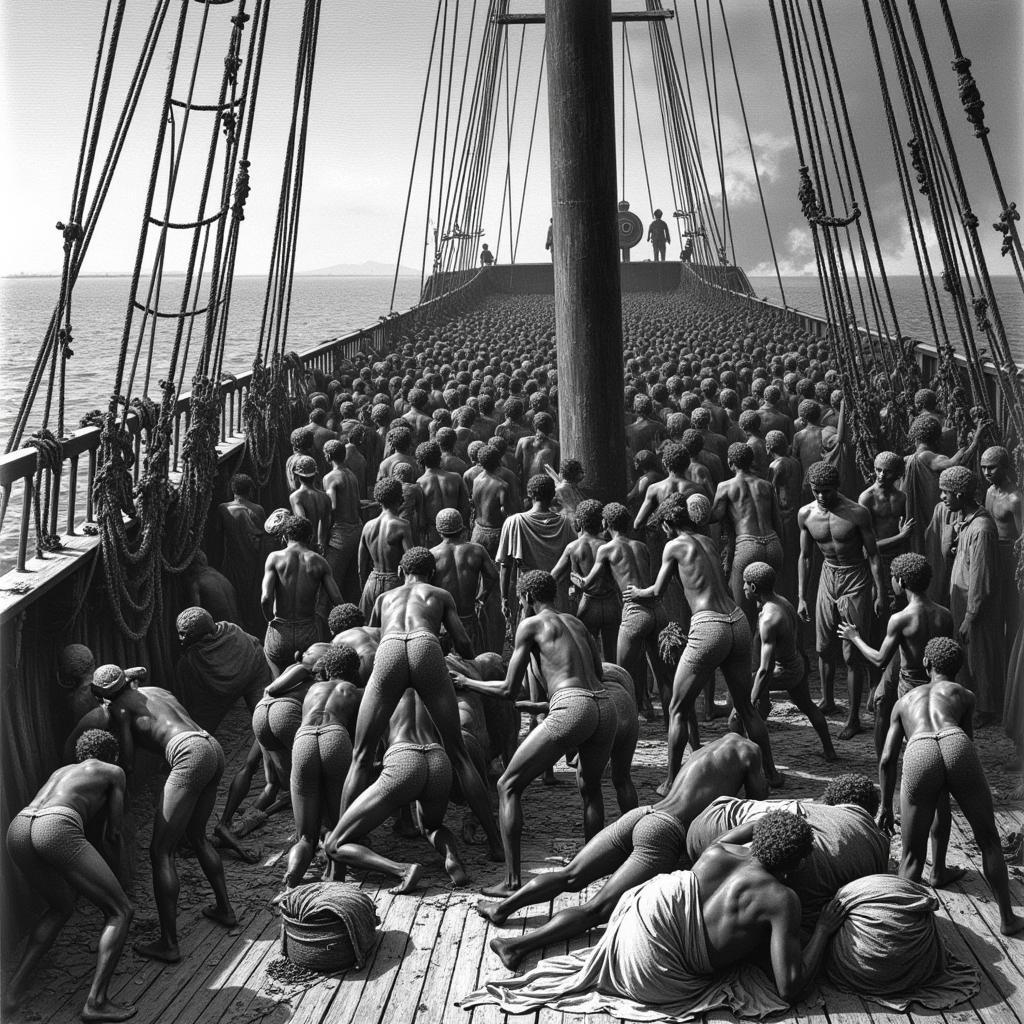Exploring the Complex History of African American Slang
African American Swear Words, like all language, are constantly evolving and carry a weight influenced by history, culture, and societal dynamics. While some may seek to understand these words simply out of curiosity, it’s crucial to delve deeper than surface-level definitions. This exploration aims to provide context and understanding surrounding the complexities of African American slang, recognizing its roots in resistance, resilience, and the ongoing struggle for equality.
It’s important to note that the use of certain words can be highly sensitive and context-dependent. What might be considered acceptable within certain communities can be deeply offensive elsewhere. This article aims to educate and provide a nuanced perspective, not to encourage the use of potentially harmful language.
A Language Born of Struggle: The Historical Context
To understand African American slang, particularly words considered “swear words,” we must acknowledge their inseparable link to the legacy of slavery and segregation in America. During these periods of intense oppression, African Americans developed their own vernacular as a way to communicate secretly, build community, and express resistance.
This unique linguistic code served as a shield against the dominant culture, allowing for the expression of pain, anger, and frustration that couldn’t be voiced openly. Over time, these words and phrases transcended their initial purpose, becoming ingrained in African American culture and identity.
Reclaiming the Narrative: From Appropriation to Empowerment
Many words initially considered offensive have undergone a process of reclamation within the African American community. This process involves repurposing words historically used to denigrate, stripping them of their power to harm, and instead using them as tools of empowerment, solidarity, and even humor.
However, this reclamation doesn’t erase the words’ painful past or make them universally acceptable. It highlights the complex relationship between language, identity, and power dynamics. It’s essential to approach these words with sensitivity, recognizing that their meaning and impact can vary greatly depending on the speaker, the audience, and the context.
The Power of Language: Respect, Understanding, and Dialogue
Understanding the history and cultural significance of African American slang, particularly words considered “swear words,” requires a commitment to empathy, respect, and ongoing dialogue. It’s not about appropriating language but about appreciating its complexity and recognizing how it reflects the lived experiences of a community.
Instead of simply seeking definitions, let’s strive to understand the historical weight, cultural nuances, and evolving nature of language. Let’s engage in respectful conversations that bridge cultural divides and foster a deeper understanding of the power and impact of words.


